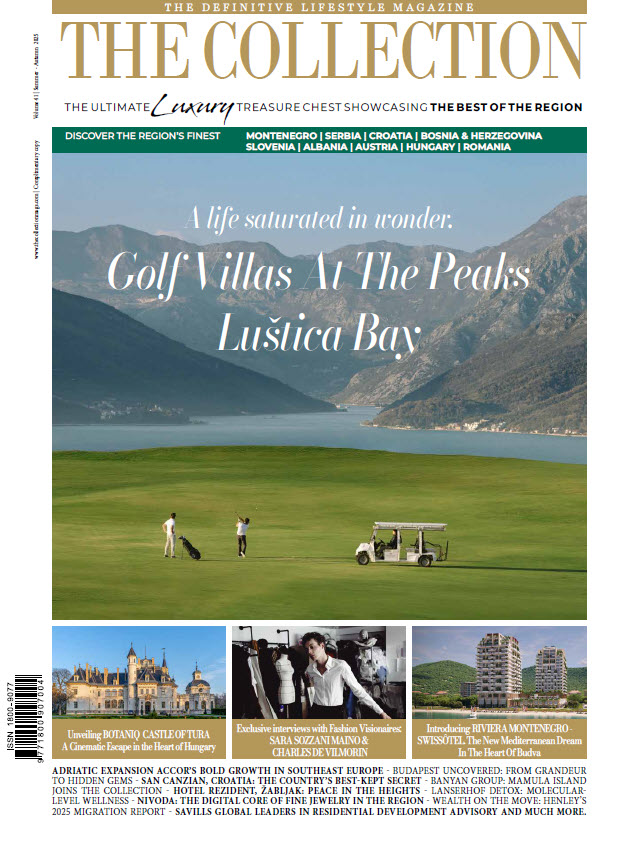Insurance as an investment in the future
Changes in today’s private life and business environment require dealing with various and numerous situations in the shortest possible time. We are faced with challenges that are unique and difficult to predict. It seems that an indispensable factor of our success is consulting, which enables us to make the best decision that will protect our interests. The same applies to insurance. A responsible approach will guide us to protect our interests in such a way as to minimize potential risks.
In this text, we will look at insurance as an investment that is very meaningful for a more secure future of each individual.
Today, insurance is considered one of the most attractive forms of investment in the world. However, we become aware of the benefits of voluntary insurance only after certain damage to property, health, or unfortunately, life occurs. Insurance is a product that we are reluctant to buy because such a purchase does not result in something concrete for us as customers. It is a product that, most often, is not bought for pleasure, but even so, we must see it as an advantage, as a responsibility to oneself, one’s family, one’s property, and regarding certain products with a savings component – also as savings.

INSURANCE THROUGH HISTORY
The first forms of insurance appeared in the early human community within the tribe, and later in the family. The first danger humanity faced was famine, and as a measure of protection, there was a modest compulsory contribution of grain during the years when the harvest was the richest.
The first risk transfer or risk distribution methods were practiced by Chinese and Babylonian merchants in the 3rd and 2nd centuries BC. Chinese merchants divided the goods among several ships to limit the loss in case of the destruction of one of the ships. The Babylonians developed a system that was written in the famous Code of Hammurabi in 1750 BC, which was practiced by merchants on Mediterranean sailing ships. If a merchant took out a loan to finance his shipment, he would also pay the lender an additional amount as a guarantee that the lender would not seek repayment of the loan if the shipment was lost or stolen at sea. Therefore, insurance is the oldest risk transfer method that was developed to reduce trade risk.

The first known insurance contract was drawn up in Genoa in 1347; in the following century, marine insurance was widely developed, and the premiums were varied and determined intuitively. Property insurance was an outcome of the Great Fire of London in 1666, in which more than 13,000 houses were burnt. In 1681, the economist Nicholas Barbon and his eleven associates created the first fire protection company, „House Insurance Office“.
RISKS AS AN INTEGRATED PART OF LIFE
A life without risks is unthinkable. We all sometimes take risks and test our limits. People who try new things should learn to assess risk and act wisely. Namely, with very risky decisions, the probability of failure increases. For many people, risk represents some uncertainty about the outcome of a particular situation. Something may happen, and if it does, the outcome may be unfavorable for us. The word risk implies doubt about the future, as well as the fact that the outcome may put us in a worse situation than the one we are in at the moment. Traditionally, risk is defined as uncertainty of occurrence of a certain event that results in a loss. People can be insured against almost any possible risk – for a price. The decisive question is whether, while striving towards the goal, we recognize the dangers and risks, whether we assess them correctly and whether we take appropriate measures to act accordingly.

HOW CAN WE PROTECT OURSELVES FROM RISKS WITH INSURANCE?
The word insurance in the broadest sense means safety, trust in something, protection, security. Insurance implies the transfer of the potential risk of tangible and/or intangible loss from the insured to the insurer based on the insurance contract.
Protection in the sense of insurance means that the consequences of risks, which are the same or similar for many people, are divided among many parties. The basic idea of insurance is to help individuals who experience an accident. When everyone who is threatened by a possible danger takes up a certain share of the payment for the actual damages, then the damages can be compensated to the persons who suffered them.

VESSEL INSURANCE
The concept of vessel insurance can be interpreted very broadly, considering that different vessels used for different purposes on different types of waters can be the subject of insurance. And not only vessels, but also a whole series of other things that are connected with navigation, such as freight rates, costs, liability and the like. When it comes to vessels, we distinguish between two basic types of insurance – compulsory insurance against liability when using the vessel and voluntary marine hull insurance of the vessel. The compulsory insurance policy covers damage caused to third parties by the use of the vessel and, on the other hand, damage caused to the vessel itself is covered by the hull insurance policy. Therefore, there is the possibility of insuring the hull, propulsion, equipment, plant, as well as inventory against the various risks to which the vessel may be exposed while used, of course, under the condition that the vessel is used for its intended purpose and in accordance with the law, i.e. that the damage did not occur intentionally or due to gross negligence of the user. At sea, in addition to beautiful experiences, unforeseen events also happen – bad weather and accidents. In recent years, the number of vessels in use in the Mediterranean has significantly increased. With increased maritime traffic, the possibility of maritime accidents inevitably increases. Although the occurrence of maritime accidents cannot be completely prevented, with adequate insurance, it is possible to significantly mitigate the consequences of those accidents.

AIRCRAFT INSURANCE
Aircraft owners, depending on their needs which most often arise from the purpose, but also the type of aircraft (they use the aircraft for their own needs, camera shooting from the air, aerial spraying, transporting people, goods, or training of other people), contract different types of insurance related to the ownership of the aircraft and performing some activity with an aircraft. That is why it is important to be insured with a policy that will cover the costs that may arise in the event of damage to the aircraft (both in the sky and on the ground), but also that will provide coverage if the use of the aircraft causes injury or damage to its passengers or third parties. Casco insurance covers physical loss or damage that occurs on the insured aircraft, as well as the costs of transporting the damaged aircraft to the place of repair. By special agreement and payment of an additional insurance premium, the insurance coverage can also be extended to cover damage to the aircraft that occurs during road transport.
PROPERTY INSURANCE
Property insurance is contracted when there is an interest of the insured to protect their property from potential dangers. The importance of property insurance is still insufficiently recognized, and the minority that is aware of the benefits of insuring their apartment, house, or weekend cottage – has a great advantage. In recent years, we have witnessed a large number of natural disasters such as fires and floods and their devastating impact. In addition to posing a threat to human lives, major or minor natural disasters also pose a threat to our property. Apartments, family homes and other assets are acquired over generations and are often the main family investments. No one wants to see their family home go up in flames in a matter of minutes. In addition, other calamities are possible, such as hail, storms, water spills or landslides.

Courtesy of MK Group
Natural disasters are unpredictable and cause damage that citizens cannot, or can hardly, compensate for. If we do not want to be left to ourselves, our friends, the municipality, or the state in the event of damage to our property, it is necessary to insure ourselves in time, if we belong to a risk group. If there is a problem with a landslide or if we suspect that our residence or building that we use for other purposes will be damaged by an unplanned flood, insurance companies offer flood insurance packages. Many factors influence the conclusion of a contract on home insurance – the number of household members, the household members’ paying capacity, the value of the property, the household members’ education and the awareness of the importance of insurance. The higher the value of the property, as well as the household budget, the greater the need for insurance, and we can say it is compulsory because no one wants to lose the acquired wealth with no possibility of return.
In addition to natural disasters, the risk is also present in circumstances caused by human factor, such as burglaries or robberies. One thing is certain: climate changes slowly become our everyday life and affect the security of our property.
Main approach to one’s own property is long-term planning. With long-term planning, owners are aware of expected, but also unexpected costs and responsibilities related to owning real estate. When the line is drawn, of course, a long-term planning approach will ultimately result in lower costs and better-maintained property.
The insurance sector covers a vast range of areas and a wide range of products and services. Some of them are well established and the awareness of their existence is there. However, in addition to this, there are several other products with which we are maybe not familiar and which can provide us with significant security when transferring risk to insurance companies.








